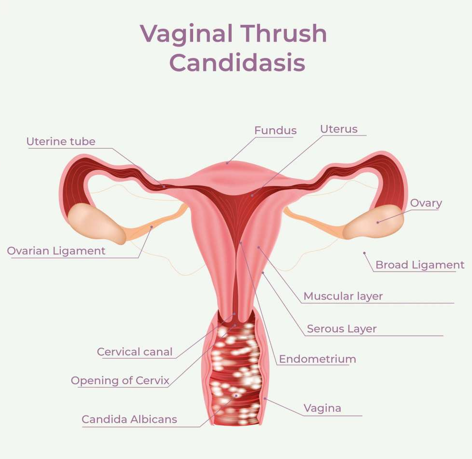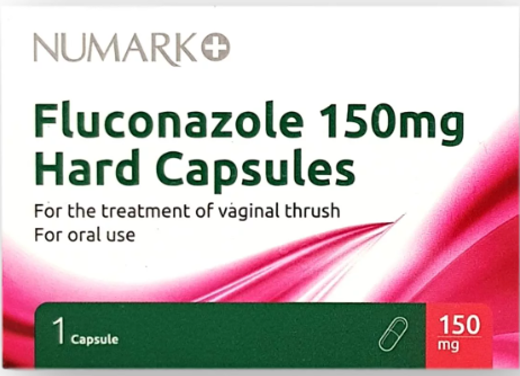Vaginal Thrush
NHS UK NHS UK Vaginal Thrush states "Thrush (Candidasis) is a common yeast infection that affects both men and women. It's usually harmless but it can be uncomfortable and keep coming back. It is not classed as a sexually transmitted infection (STI)".
Thrush tends to grow in warm, moist conditions and develops if the balance of bacteria changes for example in a womans vagina.
Symptoms of vaginal thrush include:
- White vaginal discharge (like cottage cheese), which does not usually smell
- Itching and irritation around the vulva and vagina
- Soreness and stinging during sex or when you urinate
This can happen if:
- Your skin is irritated or damaged
- You're taking antibiotics
- You have poorly controlled diabetes
- You have a weakened immune system (for example, because of HIV or chemotherapy)
- You're having hormone replacement therapy (HRT)
- You're pregnant
Symptoms of vaginal thrush in women include:
- White vaginal discharge (like cottage cheese), which does not usually smell
- Itching and irritation around the vulva and vagina
- Soreness and stinging during sex or when you urinate
A pharmacist can help with vaginal thrush
You can buy antifungal medicine from pharmacies if you've had thrush diagnosed in the past and you know the symptoms.The pharmacist can recommend the best treatment for you and they will most likely have a private area (e.g. a consultation room) to talk if you're embarrassed. The treatment ussually consists of a combination of an oral tablet (e.g. Fluconazole available from Numarknet at the following link Numarknet Fluconazole ) a tablet (pessary) e.g. Clotrtimazole you insert into your vagina (pessary) and / or a cream e.g. Clotrimazole again to relieve the irritation. The thrush should clear up within 7 to 14 days of starting treatment and you do not need to treat partners unless they have symptoms also.
The pharmacist will also counsel the patient on a variety of things including:
- The use of water and an emollient (like E45 cream) instead of soap to wash the affected area
- Drying properly after washing
- Wearing cotton loose underwear and not tights
- Not using douches or deodorants on your vagina
- Avoidance of sex until thrush has cleared up especially if sex is uncomfortable
- Antifungal creams can damage condoms and diaphragms. This means your contraception might not work anyway



